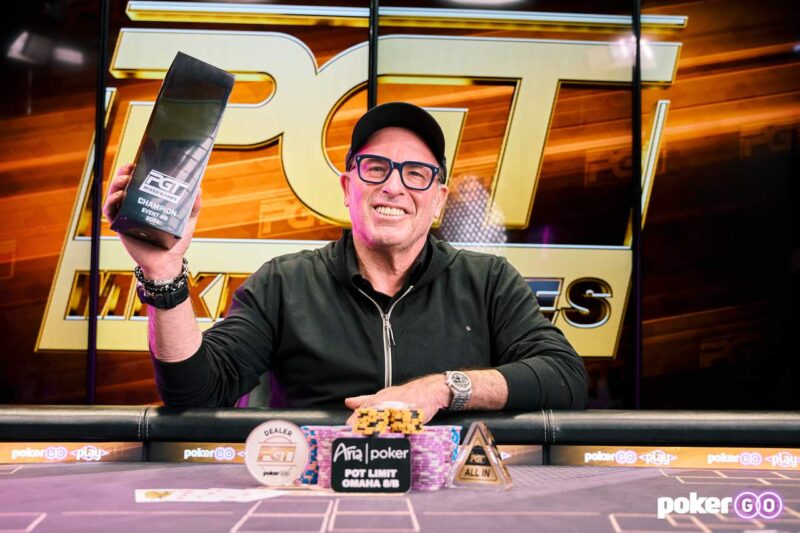Welcome to Play Along With Fox, a new series where you can learn by playing a hand along with me. Some of them will be hands that I played myself, while others will be from my students. I’ll even cover some hands from big-name pros as well.
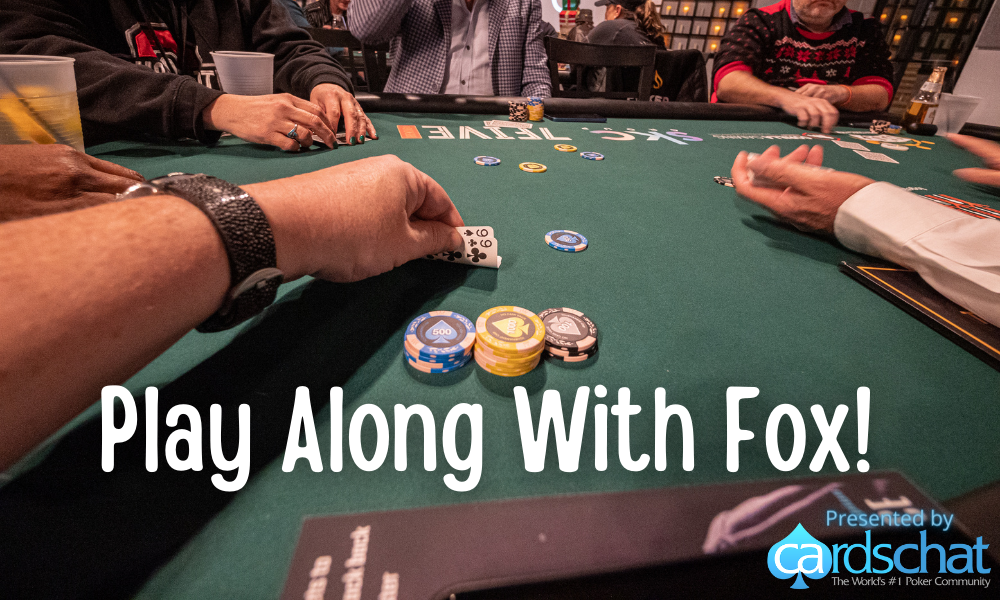
In this installment, we’ll be playing a hand that was played by one of my students. I thought the hand was an excellent spot to talk about advanced hand reads that make the real difference between a fairly good player and a really strong pro. The river play really separates the two on this one.
This hand was played on America’s Cardroom with two tables left in a tournament. We are playing from the perspective of the under-the-gun raiser who has a pair of jacks. The villain is in the big blind. From a few previous hands, we know the villain is pretty straight-forward, and a bit too loose and passive.
The blinds are 175K/350K and we raise to a 735,000, just a bit more than the minimum. I like this raise size. When the stacks are shorter toward the end of a tournament, raises should be very small. Anything more than 800,000 would be a mistake.
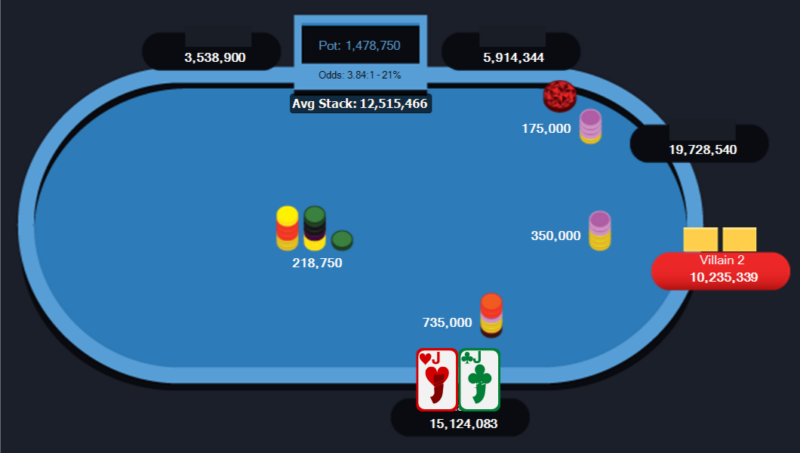
When the big blind just calls, we can probably rule out the best and worst hands. Real junk like nine-four and jack-deuce just don’t show up this late in tournaments very often. And a slow play with a monster hand would be rare here as well. This is a hand that wants to see a flop. Suited aces, suited connectors, smaller pairs, and broadway cards will be the most common holdings.
So we’re hoping for a dry, low, board, but instead, this happens.
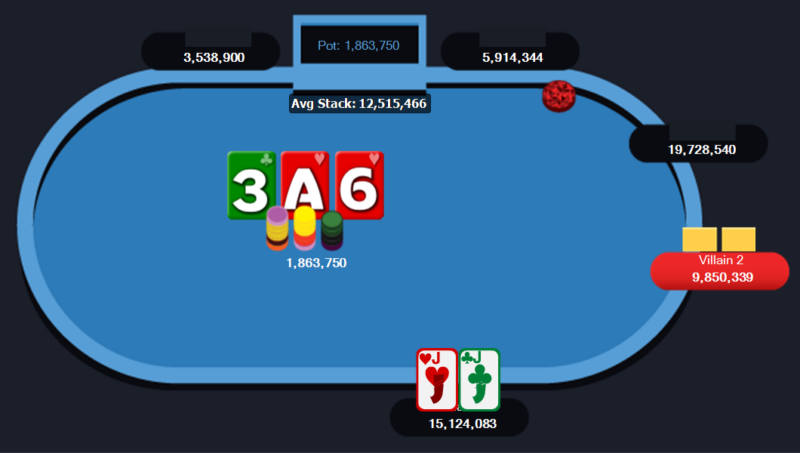
We may not love this flop, but it’s not as bad as it may first seem. The ace doesn’t hit most of the range we mentioned, and with a fairly safe board, our opponent will fold to a continuation bet the majority of the time. Most of the suited connectors, small pairs, and broadway cards will be afraid of the ace. Should we still bet?
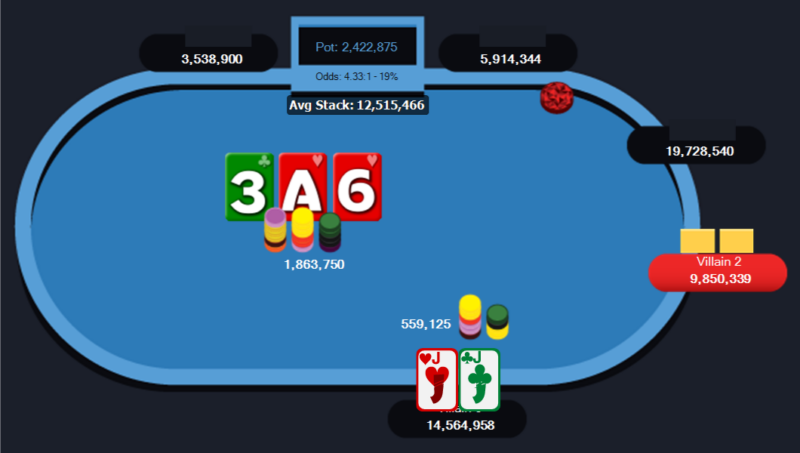
I like this bet. The optimal solution might be even smaller, but 1/3rd of the pot should work just fine here.
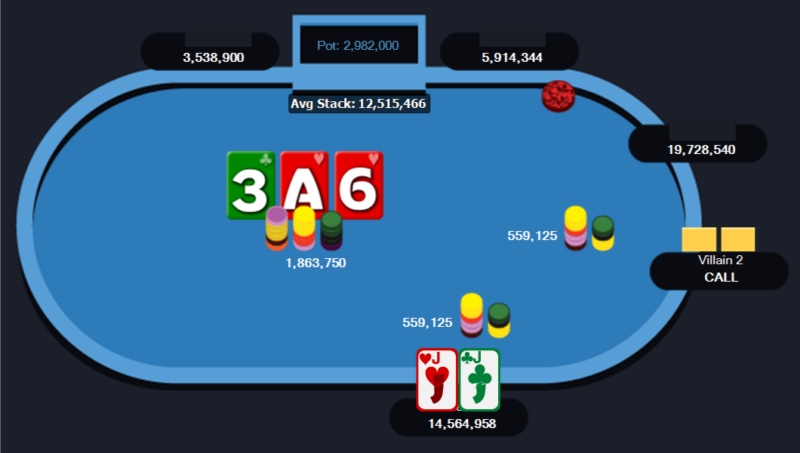
When the big blind calls, it’s easy to get lazy and just assume he usually has an ace or a set here. But there are lots of other possibilities. 3♠ 4♠, 4♠ 5♠, 4♠ 6♠, 5♠ 6♠, 6♠ 7♠, 6♠ 8♠, any two hearts, and possibly, hands like 7♠ 5♠ or 77 as well. We want to make sure we consider our opponent’s entire range here and not just give up on the hand because there’s an ace on board.
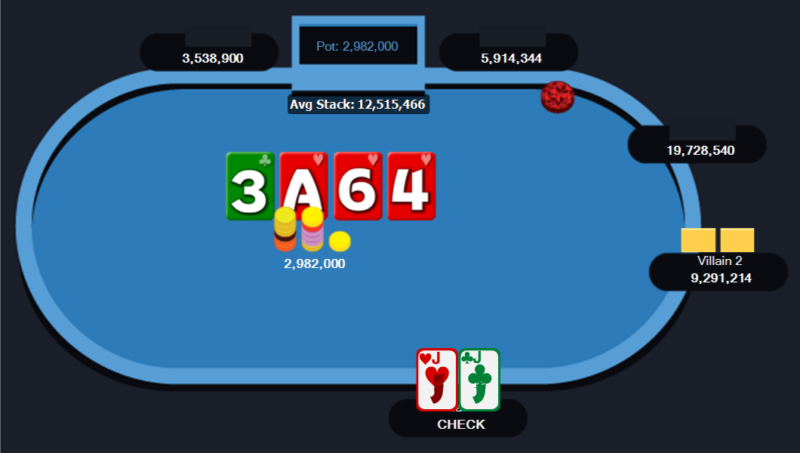
The turn isn’t great. A lot of the hands we could beat have now turned into two-pair or a pair with a straight draw. Since we may not be ahead, especially if our bet is called, and we don’t want to be raised off our flush draw, when the big blind checks we should check behind. Our hero did exactly that.
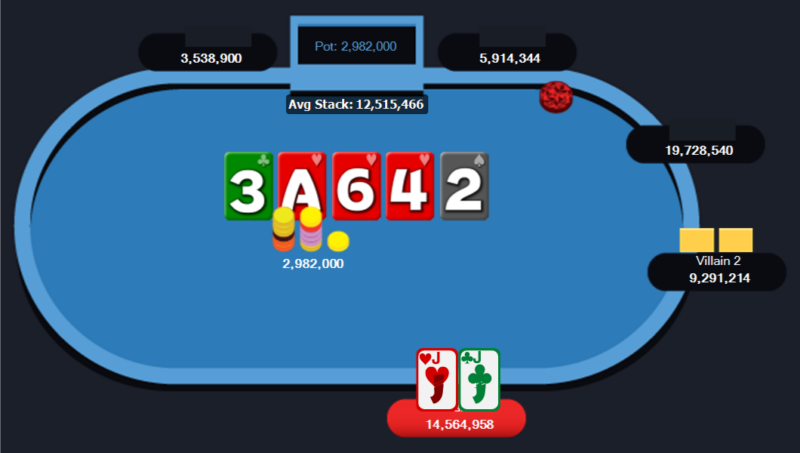
This river card does bring in a straight for any hand that included a 5, which was a big portion of the range we could still beat with our pair of jacks. But then the big blind checked to us. Could they still have a straight or two pair? What hands that can beat two jacks would have checked here?
You may think that he still has an ace fairly often, but what aces does he check here? The bigger aces — ace-king and ace-queen — would have three-bet preflop, check-raised the flop, or just bet out on the safe river after we checked behind on the turn.
Our check on the turn really changed things for the big blind. It looks like we don’t have anything now. A hand like Ace-10 would probably bet small now. And two-pair, a flush, a straight, and most aces, would bet on this river because they expect us to check again. If they know we won’t bet the hand for them, they have to bet it themselves. When they don’t bet, we can feel pretty good about our two jacks.
What is your play here? Is it automatic to check behind now that you have made it to the river with your two jacks? For most players it is. But it shouldn’t be. The big blind checking tells me that we’re ahead almost all the time. Can we actually value bet here?
Can we value bet this river?
It’s very close and really depends on our exact opponent, but in many cases, we can bet for value here in a spot that many players would never consider. I’m not telling you to value bet every time in these situations, but make sure that you consider it and think deeply about what your opponent’s range is, and what hands they might call with.
The pot has nearly three million in it. I think if we bet 400,000 here, we win much more often than we lose when our opponent calls. And we very rarely get check-raised. If we get called by 99, 88, 77, 7♠ 6♠, 8♠6♠, and oddballs like K♠6♠, and the occasional ace that decided to check the river, we’re still winning more often than we’re losing.
A very large bet is also worth considering. If we bet four million, what hands can call us? Maybe two pair that played it in a very passive way? Or a flush that slow-played all the way into a river check? The possibility of those big hands is the reason we probably shouldn’t make a big overbet to get any hand with an ace in it. We would be risking too much in this spot, but the overbet on the river should be another thing you always consider.
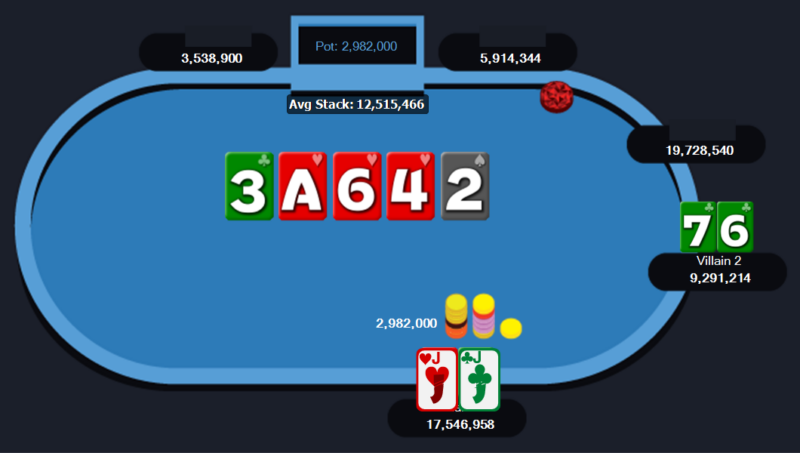
The big blind had just about the hand we expected once they checked the river. One pair that didn’t include an ace. Would they have called a small river bet with that hand? We’ll never know, but I think they would have certainly called often enough to make it worth a bet.
Remember, this was a player that we didn’t have a lot of respect for. Against a very strong opponent, we can’t bet here as often because they’ll be much more likely to check an ace, and will usually make the right decision when we bet.
What I hope you learn from this hand
I hope what we learned was to look at all of our opponent’s range, not just the most common part, or the part we’re scared of. If we just assume they have an ace when they call the flop bet, we ignore a big portion of their range and might miss a good spot for a value bet.
I also want you to remember to adjust your assumptions about your opponent’s range with every action. I assumed that the villain’s range was pretty strong until they checked the river. But, after the river check, we could narrow it down quite a bit and assume that we were winning most of the time.
So, don’t give up on a hand until you’ve considered all your options and everything your opponent has done, including their most recent action.


